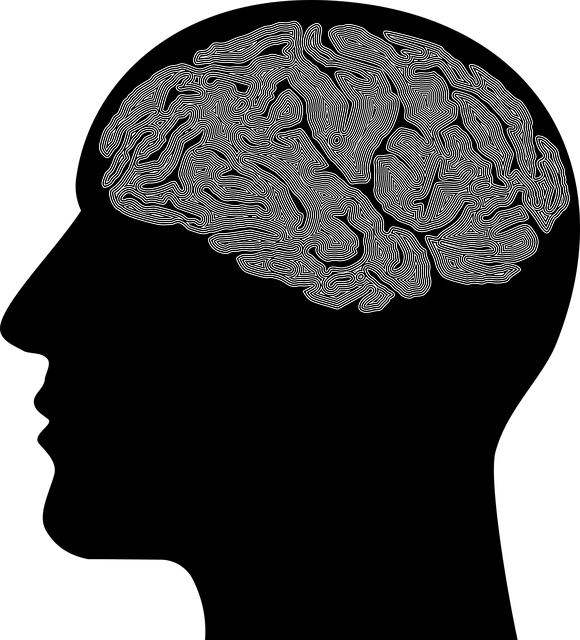The Castle Rock Kaiser Permanente (CRKP) mental health center prioritizes cultural sensitivity as a cornerstone of its patient-centric approach, addressing diverse needs within its community. Through initiatives like the Community Outreach Program, CRKP bridges access gaps and integrates cultural perspectives into therapy, ensuring tailored coping skills development. Staff training in cultural competency, stress reduction, and compassion cultivation creates an inclusive environment, fostering trust and enhancing communication for optimal patient outcomes. This commitment to cultural sensitivity sets CRKP apart as a leader in providing high-quality, inclusive mental healthcare services.
“Cultural sensitivity is a cornerstone of effective mental healthcare, especially in diverse communities. This article explores the crucial role it plays at Castle Rock Kaiser Permanente, one of the leading mental health centers. We delve into the significance of cultural competence, strategies to overcome barriers, and best practices for creating inclusive environments. By understanding and respecting various cultures, Castle Rock Kaiser Permanente enhances patient outcomes and ensures tailored, sensitive care, setting a standard for excellence in mental healthcare.”
- Understanding Cultural Sensitivity in Mental Healthcare
- The Importance of Cultural Competence at Castle Rock Kaiser Permanente
- Identifying and Addressing Cultural Barriers to Treatment
- Strategies for Culturally Sensitive Practice Environments
- Enhancing Patient Outcomes through Cultural Sensitivity
Understanding Cultural Sensitivity in Mental Healthcare

Cultural sensitivity is a cornerstone in providing effective mental healthcare, especially within diverse communities like those served by Castle Rock Kaiser Permanente. Understanding and respecting cultural differences can significantly enhance patient outcomes and create a more inclusive environment. The Castle Rock Kaiser Permanente mental health center recognizes that every individual enters therapy with unique cultural backgrounds, experiences, and beliefs that shape their perceptions of mental illness and healing.
This awareness guides the implementation of initiatives such as the Community Outreach Program, which aims to bridge gaps in access to mental healthcare services within diverse communities. By incorporating cultural perspectives into therapeutic practices, coping skills development becomes more tailored and relevant. Moreover, it facilitates emotional well-being promotion techniques that resonate with clients from various cultural backgrounds, fostering trust and engagement.
The Importance of Cultural Competence at Castle Rock Kaiser Permanente

At Castle Rock Kaiser Permanente mental health center, cultural competence is not just a buzzword—it’s a cornerstone of patient care. In an increasingly diverse society, understanding and respecting different cultural backgrounds, beliefs, and values are essential to providing effective treatment for mental illness. This is particularly significant in the context of the Castle Rock Kaiser Permanente mental health center, which serves a vibrant and varied community.
By integrating Emotional Intelligence into their practice, therapists and counselors at Castle Rock Kaiser Permanente strive to create a safe and supportive environment for all patients. Mental Illness Stigma Reduction Efforts are also a key component of their approach, aiming to foster open dialogue and understanding within the community. Additionally, the implementation of a robust Community Outreach Program ensures that mental healthcare services are accessible and tailored to meet the unique needs of diverse populations.
Identifying and Addressing Cultural Barriers to Treatment

Cultural sensitivity is a cornerstone of quality mental healthcare, and identifying cultural barriers to treatment is essential for professionals at Castle Rock Kaiser Permanente mental health center. These barriers can stem from various factors such as language differences, different cultural beliefs about mental health, and historical or systemic injustices experienced by marginalized communities. When left unaddressed, these barriers may result in reduced access to care, mistrust between patients and healthcare providers, and ultimately, suboptimal treatment outcomes.
At Castle Rock Kaiser Permanente, prioritizing cultural competency training for healthcare providers is a key strategy to overcome these challenges. The center recognizes that understanding and respecting diverse cultural contexts can foster a sense of safety and trust among patients. Through ongoing training and public awareness campaigns development, the mental health center aims to bridge communication gaps, promote inclusive practices, and ultimately, provide Anxiety Relief tailored to each individual’s unique cultural background.
Strategies for Culturally Sensitive Practice Environments

Creating a culturally sensitive environment at mental health centers, such as the Castle Rock Kaiser Permanente facility, involves several strategic approaches. One key strategy is to implement Healthcare Provider Cultural Competency Training. This training equips staff with knowledge about various cultural beliefs, values, and practices, fostering an inclusive atmosphere. By understanding the unique needs of diverse patient populations, providers can offer tailored care that respects individual cultural contexts.
Additionally, incorporating Stress Reduction Methods and Compassion Cultivation Practices can significantly enhance cultural sensitivity. These practices not only help patients manage their mental health but also encourage a deeper understanding between caregivers and those seeking assistance. Through mindfulness exercises and empathetic communication, the Castle Rock Kaiser Permanente mental health center can create a nurturing environment that bridges cultural gaps, ensuring every patient feels heard and valued.
Enhancing Patient Outcomes through Cultural Sensitivity

At the Castle Rock Kaiser Permanente mental health center, cultural sensitivity is not just a practice but a cornerstone of patient care. By acknowledging and respecting diverse backgrounds, beliefs, and values, we enhance our ability to provide tailored services that address each individual’s unique needs. This approach significantly improves patient outcomes by fostering trust and encouraging open communication.
Our mental health professionals are trained in effective communication strategies and emotional intelligence, enabling them to navigate complex cultural landscapes with empathy and nuance. This skill set facilitates the emotional healing processes, allowing patients from various cultural backgrounds to express their feelings freely, explore their identities, and work towards recovery on their terms.
Cultural sensitivity in mental healthcare is not just a best practice, but an essential component of high-quality care, as exemplified by the efforts at Castle Rock Kaiser Permanente. By understanding and addressing cultural barriers, implementing sensitive practices, and fostering a culturally competent environment, mental health centers like this one can enhance patient outcomes and create a more inclusive and effective treatment experience for all individuals, regardless of their background or identity. Embracing cultural sensitivity is a powerful step towards revolutionizing mental healthcare and ensuring that everyone has access to the support they need.






